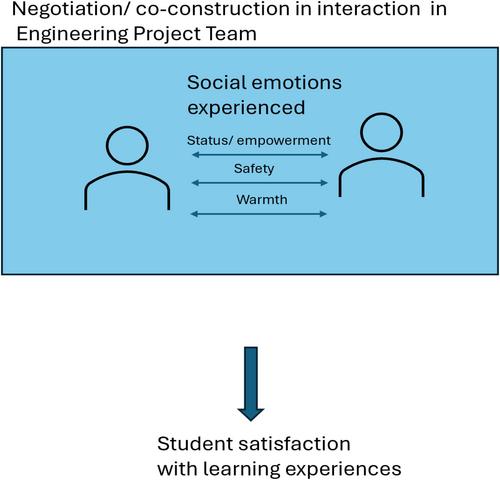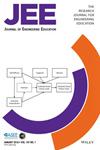“I felt there was no team to be included in”: Navigating social emotions and masculinities in engineering team projects
Abstract
Background
Engineering education often upholds masculinity norms such as individual competitiveness and emotional stoicism. These norms affect team dynamics and students' satisfaction with learning experiences in team projects.
Purpose
This study explores how social emotions experienced by computer science students, in conjunction with their (re)construction of masculinities, affect their satisfaction with learning experiences during team projects.
Method
Semi-structured interviews were conducted with 34 students engaged in team projects at two Swiss technical universities. Each participant was interviewed twice: once at the beginning and once at the end of the project. We asked about their emotions, the reasons behind them, and their satisfaction with learning experiences during the project. Data were analyzed using reflexive thematic analysis.
Results
Two main themes were generated: (i) Hegemonic Masculinities describe patterns where students reinforced masculinity norms (i.e., competitiveness, prioritizing performance over social connections, and suppressing emotions to appear competent), which often led to decreased satisfaction with their learning experiences; (ii) Counterhegemonic Practices refer to instances where participants challenged these norms by promoting collaboration, sharing emotions, and providing mutual support. These practices enhanced satisfaction with learning experiences by fostering more inclusive and supportive team environments.
Conclusion
The findings highlight the role of social emotions in sustaining or challenging masculinity norms within engineering education. Suppressing emotions upholds the status quo and diminishes learning satisfaction, whereas embracing emotional authenticity promotes inclusive team dynamics and improves learning experiences.


 求助内容:
求助内容: 应助结果提醒方式:
应助结果提醒方式:


